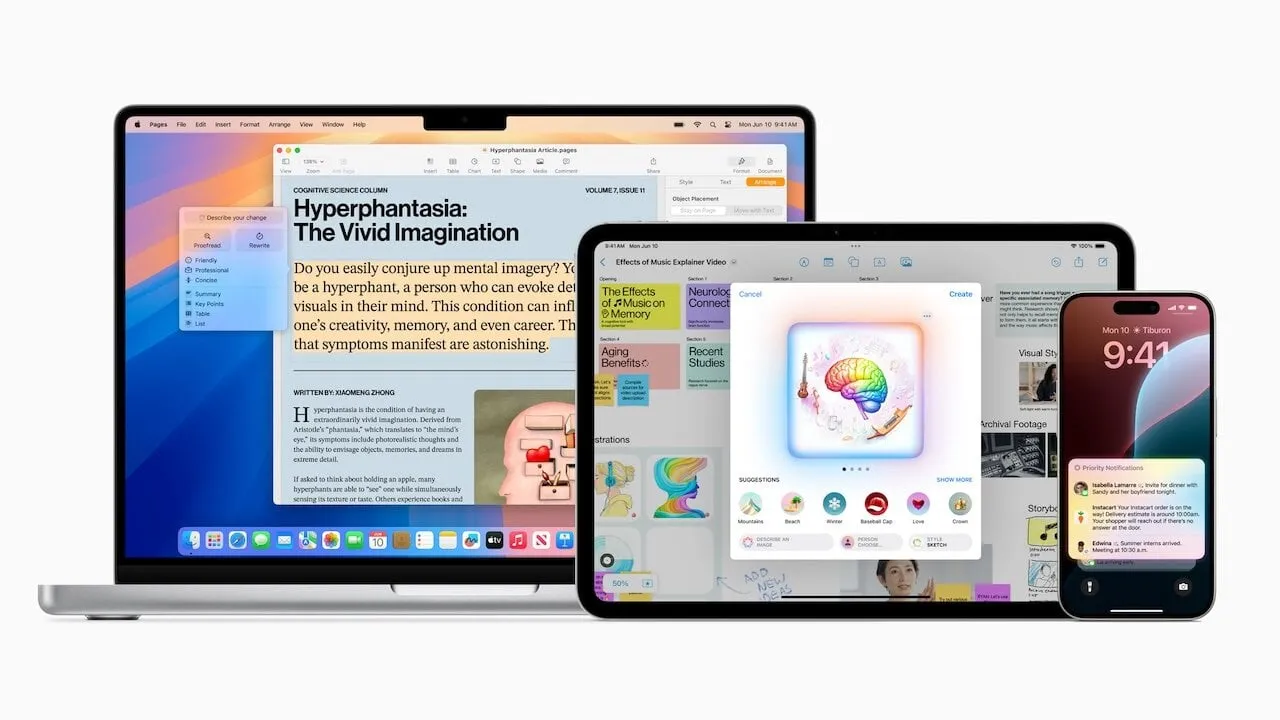
Apple is taking a deep dive into AI with its new Apple Intelligence suite of features across iPhones, iPads, and Macs. While some requests will, with user permission, be routed to OpenAI’s ChatGPT, a top exec says Apple’s own AI services rely on a “blockchain-ish” model to ensure user privacy.
But what does that really mean? Following Apple’s keynote presentation, its Senior Vice President of Software Engineering Craig Federighi and SVP of Machine Learning and AI Strategy John Giannandrea took the stage for a press interview about the consumer tech giant’s big AI push, moderated by content creator Justine “iJustine” Ezarik.
Asked how Apple would make sure its customer information remained private if it leaves their devices, Federighi explained that user requests sent to Apple servers are anonymized, as their IP addresses are masked and the server itself is prevented from keeping a log of information. On top of that, an image of the server software will be publicly shared so that it can be audited by independent security researchers, and user devices will only interact with servers with auditable software.
“It’s a clever kind of blockchain-ish attestation log to make sure the iPhone will only trust the software that’s been publicly put out there,” Federighi said, adding that Apple will soon issue a white paper about its security model. “It’s a really extraordinary step up in terms of the level of trust you can place in server computing.”
What it means
But while the Private Cloud Compute model is designed to be transparent and invites public scrutiny, Apple is not launching a decentralized network: It’s still ultimately running the show as a centralized player. There’s no decentralized consensus model in play, and users still ultimately have to trust what Apple is saying regarding its privacy mechanisms.
“That’s not my read,” tweeted Riccardo “fluffypony” Spagni, founder of privacy coin Monero, in reply to Dai. “I think it’s more like a linked list, or actually more like [Github]. There’s no consensus mechanism here, there’s a central publisher.”
“This isn’t a blockchain,” Spagni added in a further reply.
However, Apple has been exploring the potential for blockchain tech. In a patent application filed in 2023 and published earlier this year, Apple sought to patent a “Distributed Network Management System“ that explicitly mentions the potential use of blockchain in some implementations. Elsewhere, a recently granted Apple patent describes a “decentralized ledger” used in the process of publishing media assets.
Private Cloud Compute isn’t a blockchain, based on what we know so far. But Apple said in its security post that more details are forthcoming, and the firm doesn’t appear to have shut the door on potential use cases for blockchain tech. What’s here is “blockchain-ish,” at least, in the words of Craig Federighi—and that’s an interesting claim from Apple all the same.
